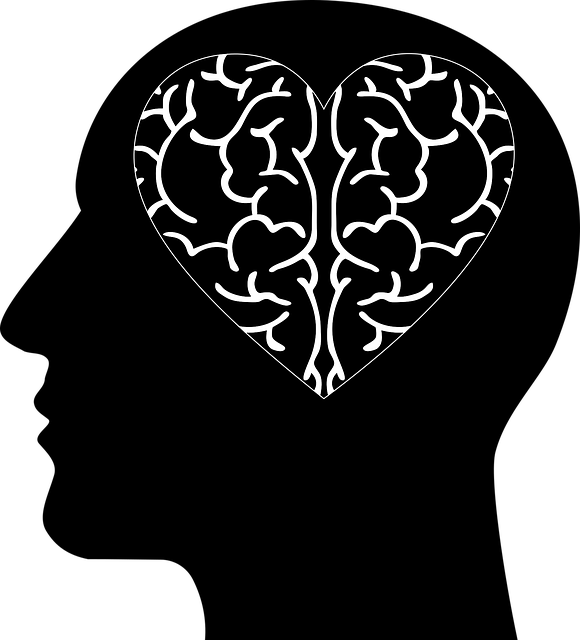Castle Rock Relationship Issues Therapy is a comprehensive approach to fostering healthier connections through emotional intelligence (EI). This therapy empowers individuals to recognize, understand, and manage their emotions, as well as empathize with others. By developing self-awareness, learning healthy emotional responses, and enhancing empathy, clients gain skills crucial for effective communication and conflict resolution. Through specialized therapeutic techniques like CBT and mindfulness, along with community outreach programs, this therapy supports trauma processing, boosts mental wellness, and strengthens personal relationships.
Emotional intelligence (EI) is a powerful tool that can transform both personal relationships and professional success. In today’s fast-paced world, understanding and managing your emotions is more crucial than ever. This article delves into the multifaceted aspects of building EI, exploring strategies to identify and regulate your own feelings, foster empathy, improve communication, and leverage Castle Rock Relationship Issues Therapy for profound growth. By mastering these skills, you can cultivate deeper connections and lead a more fulfilling life.
- Understanding Emotional Intelligence and Its Impact on Relationships
- Identifying and Managing Your Own Emotions
- Enhancing Empathy: Walking in Someone Else's Shoes
- Effective Communication Strategies for Better Connections
- The Role of Therapy in Building and Nurturing Emotional Intelligence
Understanding Emotional Intelligence and Its Impact on Relationships

Emotional intelligence (EI) refers to an individual’s ability to recognize, understand, and manage their own emotions, as well as empathize with others. It involves self-awareness, self-regulation, motivation, empathy, and social skills. In the context of Castle Rock Relationship Issues Therapy, EI plays a pivotal role in enhancing communication and fostering healthier connections.
When individuals possess high emotional intelligence, they become more attuned to their own feelings and those of their partners or loved ones. This heightened awareness allows for better conflict resolution, as it enables people to address issues without escalating them. Moreover, EI facilitates the provision of Trauma Support Services by helping individuals process and manage their emotions related to traumatic experiences. Through Social Skills Training and Community Outreach Program Implementation, emotional intelligence can be cultivated, leading to improved social interactions and stronger relationships.
Identifying and Managing Your Own Emotions

Emotional intelligence begins with self-awareness—identifying and understanding your own emotions. This involves recognizing when you’re feeling a certain way and why. It’s about being honest with yourself about your triggers, fears, and desires. In Castle Rock Relationship Issues Therapy, professionals often guide clients through this process by encouraging them to keep a Mental Wellness Journal. By jotting down their thoughts, feelings, and experiences, individuals can gain valuable insights into their emotional patterns and behaviors.
Managing emotions effectively is the next step. It means learning to respond to your feelings in healthy ways, rather than reacting impulsively. This can involve developing coping mechanisms like deep breathing exercises or engaging in activities that promote Confidence Boosting. With proper guidance from trauma support services, individuals can learn to navigate their emotional landscape, fostering a stronger sense of self-control and overall mental wellness.
Enhancing Empathy: Walking in Someone Else's Shoes

Enhancing Empathy involves stepping into someone else’s shoes—a powerful tool for anyone seeking to improve their emotional intelligence and navigate Castle Rock relationship issues therapy. By actively trying to understand another person’s perspective, feelings, and experiences, we can break down barriers and foster deeper connections. This simple yet profound act of walking in someone else’s shoes encourages us to set aside our own biases and judgments, allowing for a more nuanced appreciation of their inner world.
In the context of Castle Rock relationship therapy or mental health education programs design, empathy-building strategies are invaluable conflict resolution techniques. They help individuals communicate more effectively, resolve misunderstandings, and strengthen bonds. Empathy isn’t just about feeling sorry for someone; it’s about genuinely comprehending and sharing their feelings. This skill can be cultivated through various empathy-building activities and is a cornerstone of fostering healthy relationships and improving overall mental well-being.
Effective Communication Strategies for Better Connections

Effective communication is a cornerstone of emotional intelligence and can significantly impact our relationships, both personal and professional. For individuals dealing with Castle Rock relationship issues, learning to communicate openly and assertively is an essential step towards resolution. Therapy sessions can provide a safe space to practice these skills, encouraging clients to express their feelings, needs, and boundaries. By fostering honest dialogue, therapists help individuals navigate complex emotions, reduce misunderstandings, and strengthen connections.
In the context of Castle Rock relationship therapy, professionals emphasize the importance of active listening, empathy, and non-verbal cues. Mood management techniques, such as cognitive-behavioral strategies, can assist clients in regulating their emotions during conversations. Additionally, anxiety relief methods are valuable tools for those who struggle with communication due to heightened stress or fear of judgment. Risk management planning is also crucial, ensuring individuals develop adaptive coping mechanisms to navigate potential challenges arising from improved communication.
The Role of Therapy in Building and Nurturing Emotional Intelligence

Building emotional intelligence (EQ) is a transformative journey, and therapy plays a pivotal role in this process. Castle Rock Relationship Issues Therapy provides a safe and supportive space for individuals to explore their emotions, understand their triggers, and develop healthy coping mechanisms. Trained therapists act as guides, helping clients navigate the complex landscape of their feelings and thoughts. Through various therapeutic techniques, such as cognitive-behavioral therapy (CBT) and mindfulness practices, individuals can learn to recognize and manage their emotions effectively.
In addressing Castle Rock Relationship Issues, therapy also offers trauma support services tailored to help clients process and heal from past experiences. This is especially relevant when it comes to stress management, as many people struggling with anxiety relief often have underlying emotional wounds that need attention. By participating in structured workshops and individual sessions, individuals can enhance their EQ, improve communication skills, and foster healthier relationships, ultimately leading to a more fulfilling and balanced life.
Emotional intelligence is a powerful tool for enriching relationships and overcoming Castle Rock relationship issues. By understanding and managing our own emotions, practicing empathy, and adopting effective communication strategies, we can forge deeper connections with others. Castle Rock Relationship Issues therapy serves as a valuable guide, providing tailored support to nurture emotional intelligence and foster healthier, more fulfilling relationships.












